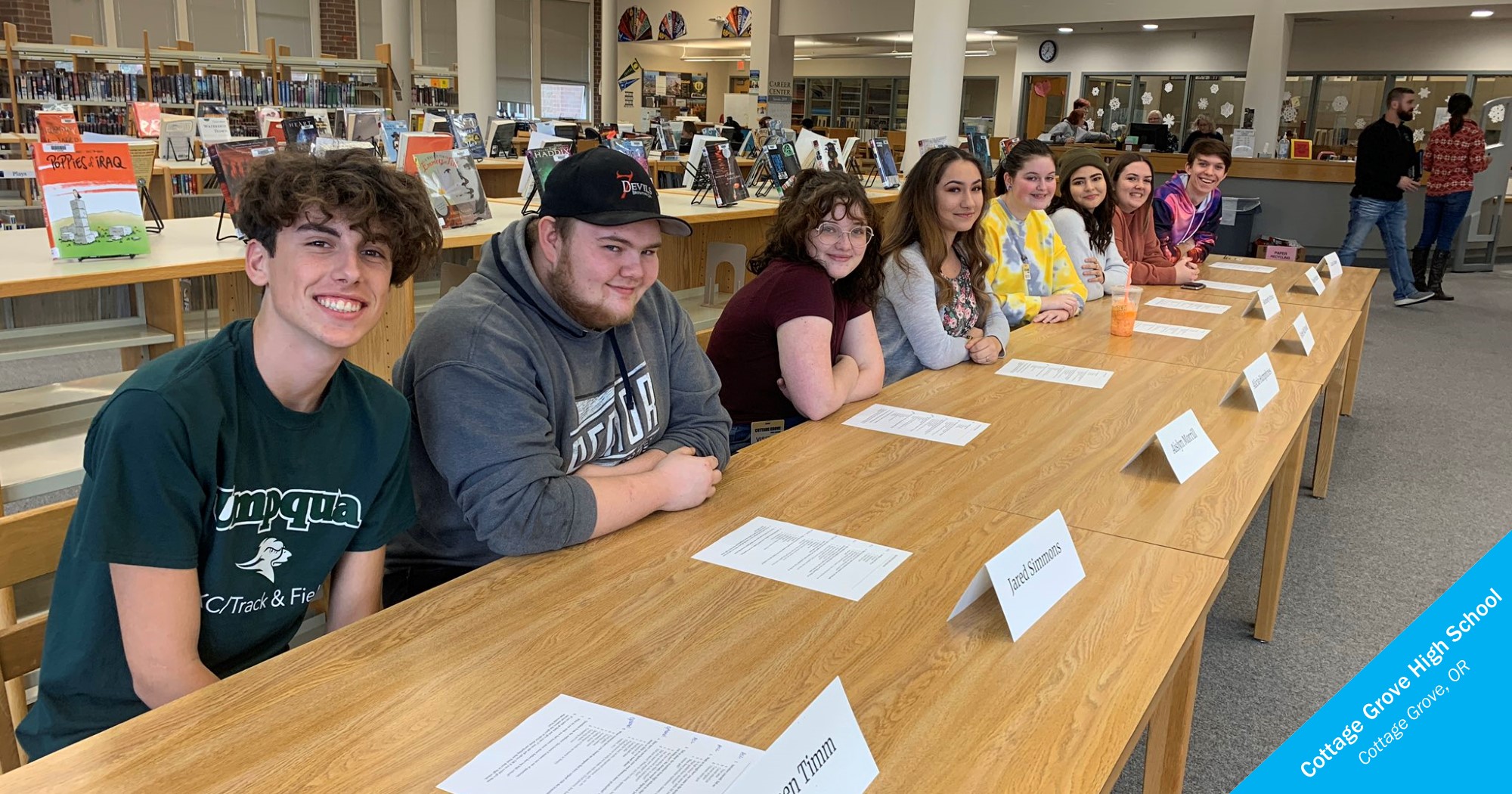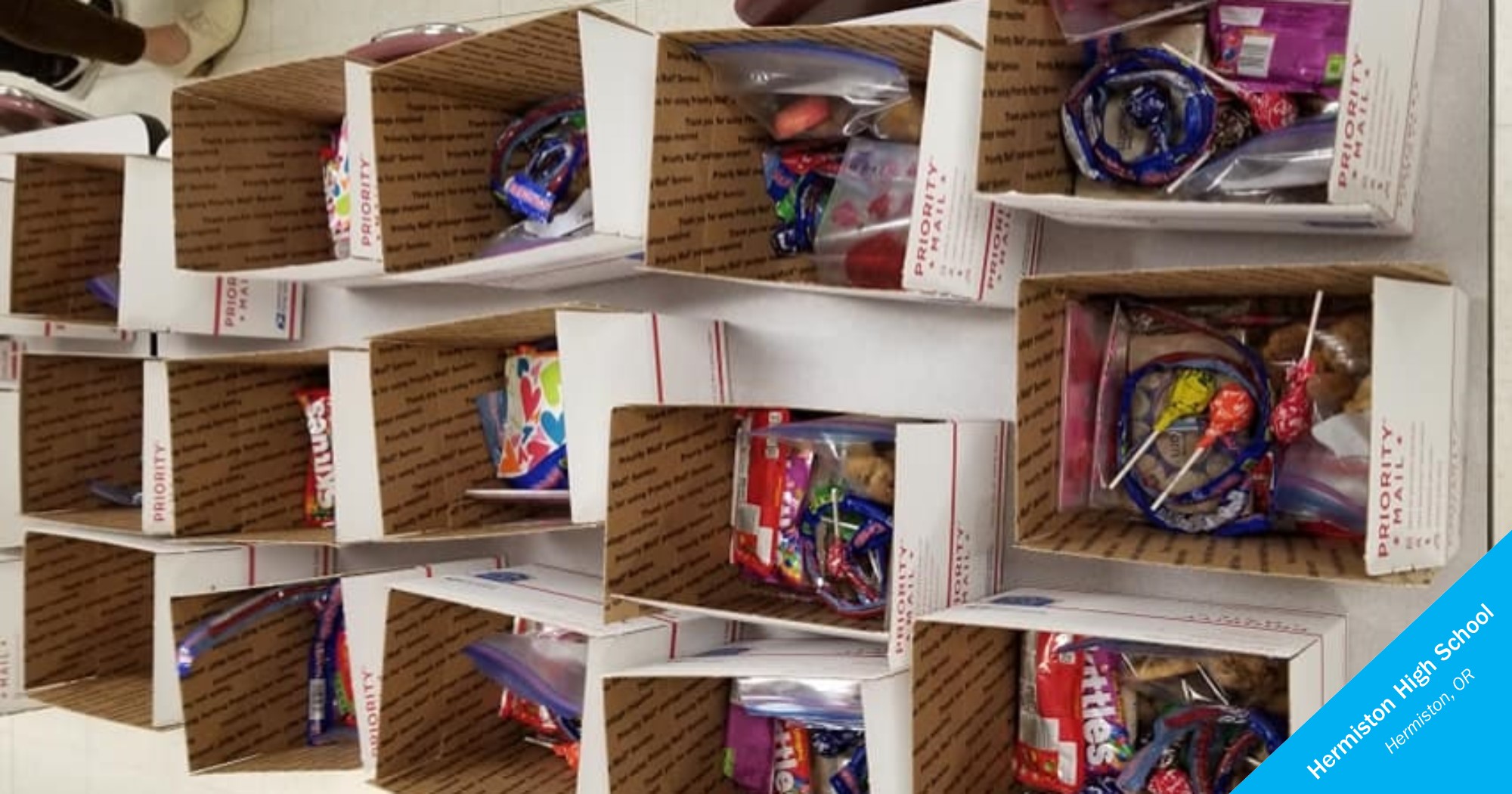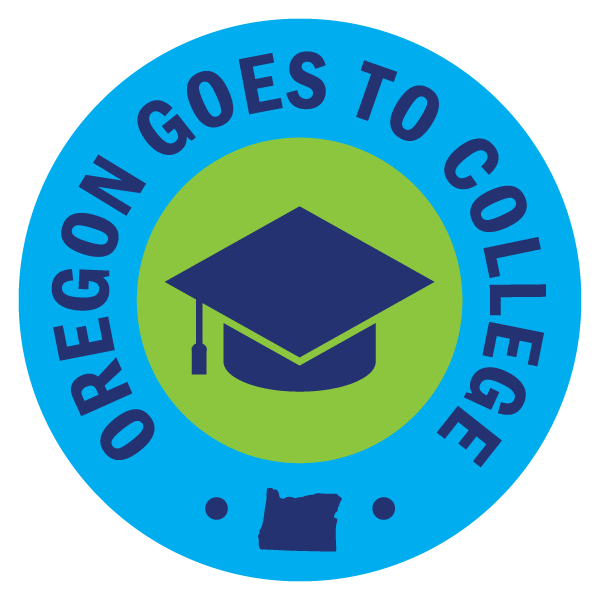
Learn how to support seniors through the summer after high school graduation and the first year of college.
The transition from high school to college can be daunting for many students as they adjust to new responsibilities. High schools can help bridge the gap for students in the summer after graduation and through the first year of college, providing a source of support and information as students navigate a new environment. Learn specific strategies to keep students and parents connected.
Table of contents
★ = Oregon Goes To College resource
Why the transition to college matters
Students need continued support in order to successfully complete a college degree. Researchers estimate that anywhere between 10-40% of students who planned on attending college upon graduating from high school do not end up enrolling in the fall. This phenomenon, coined “summer melt”, is the first obstacle of many for first-year students.
Once enrolled, first-year students face many challenges. Over a third report difficulty in adjusting to the demands of college coursework. Almost half struggle with time management. And almost two out of three report feeling lonely or homesick.
More than half of first-year students in Oregon’s community colleges and over 25% at 4-year public colleges will not return for their second year. However, students who are engaged on campus and have social supports are more likely to have greater academic success, persist and graduate.

How high schools can help
High schools should provide information and resources that address common challenges in the first-year of college, build college cohorts by promoting peer networks that support each other, maintain communication regularly with encouragement and advice, and keep alumni connected with their hometown, with college students serving as near-peer mentors and role models for current students. Keeping parents connected and supported is critical, too.
Provide information and resources
Senior year
Address common challenges and issues that come with the transition to college during dedicated class time, advisory or workshops. Topics to cover include:
- College Support Services Scavenger Hunt ★
- College Success Checklist ★
- common college terms - College Terms! Swat Game ★
- choosing classes and academics in college
- budgeting and money management
- getting involved and finding friends
- homesickness
- what to bring
Encourage students (especially those going to a large, 4-year college) to complete this free, self-paced online course that covers strategies for exploring and selecting a major, getting the most out of campus life and more.
Summer and in college
Using a variety of communication methods, inform students of key next steps and remind them how to be successful in college. Be available for questions and concerns from students and families.
Encourage students to self-advocate to find the information and support they need on their specific college campuses. Ask guiding questions and end conversations with a concrete next step for students. Check back with students to ensure they followed through.
Build a college cohort
Senior year
Host a senior cohort night (part of Transition to College Events ★) prior to graduation, in which students who will be attending the same college have an opportunity to gather and develop peer relationships that can be further developed and sustained throughout college. Consider including a “digital cohort” for students who will be the only ones from your high school on their campus and/or partnering with nearby high schools to increase the size of cohorts.
Identify one student ambassador on each campus who can help facilitate communications among the cohort and who can encourage intervention when needed.
Summer
Host a summer send-off (part of Transition to College Events ★) picnic or BBQ in late summer or early fall.
In college
Plan first-month-of-school visits to campuses where multiple students are enrolled. Host a dinner or other event at which your alumni can reconnect and share their experiences. (Bonus ideas: drop off care packages and collect college addresses.)
As your cadre of college students grows, develop a program to have on-campus “buddies,” pairing a first-year student with sophomores, juniors, or seniors who graduated from your high school.

Maintain communication
Senior year
Conduct a 12th Grade Exit Survey ★ with all seniors at the end of the school year to ascertain fall plans and gather contact information for next year.
Summer and in college
Utilize social media to build and maintain relationships. Consider having a “class of 20XX” group in which students can engage their friends and you can offer encouragement, tips, and reminders.
Send regular Text Messages ★, beginning immediately after graduation, with general reminders about next steps and key college responsibilities.
Send monthly Postcards ★ containing study skill tips & tricks or pertinent reminders and an encouraging note from high school students and/or staff.
Assign a counselor or volunteer mentor (based at the high school) to all first year college students. This person is responsible for touching base with the student at regular intervals, potentially with a task-oriented purpose.
Extend existing mentoring programs into the first year of college.
Develop a “Friends of XX School” program in communities where several of your students attend college. Assign these adult “friends” to your alumni and task them with being someone the student can turn to when in need of assistance, support, or advice.
Keep track of your communication with individual students with a College Student Contact Log ★.
Keep alumni connected
In college
When on campus visits, invite alumni to share a meal with middle/high school students. Gather a group of 3-5 and ask them to host a panel discussion about life as a college student.
Invite alumni to return to the middle/high school during their fall/winter/spring breaks. They can offer informational sessions in the college center, sit on an Alumni Panel ★ about college life, or visit a class to talk about their experiences.
Send College Care Packages ★, curated and packed by current students, parent organizations or the alumni association, to college freshmen. Include something to remind them of home, something to help them with their studies, a fun treat they can share, and an encouraging note.
Organize a homecoming tailgate (part of Transition to College Events ★) specifically for recent alumni, especially those who are attending college. Celebrate community and provide a forum for alumni to talk about their experiences – include talking about challenges and possible solutions.
Host a holiday party (part of Transition to College Events ★) for recent alumni at the start of winter break. Include a celebration of success after the students’ first finals. Invite alumni from 5-10 years out to talk about their current lives/careers. Use this as an opportunity to build connections based on career interests.
Keep parents connected, too
Develop a parents’ group that brings together parents of seniors and first-year college students. Use the questions from our Alumni Panel ★ as a starting place and encourage an agenda that provides support for both.
Send newsletters to families with information about how to support their students while they are away.
Host parent workshops at key points in a student’s transition to college to help parents deal with the changes in their children – first weeks away, coming home for break, etc.
